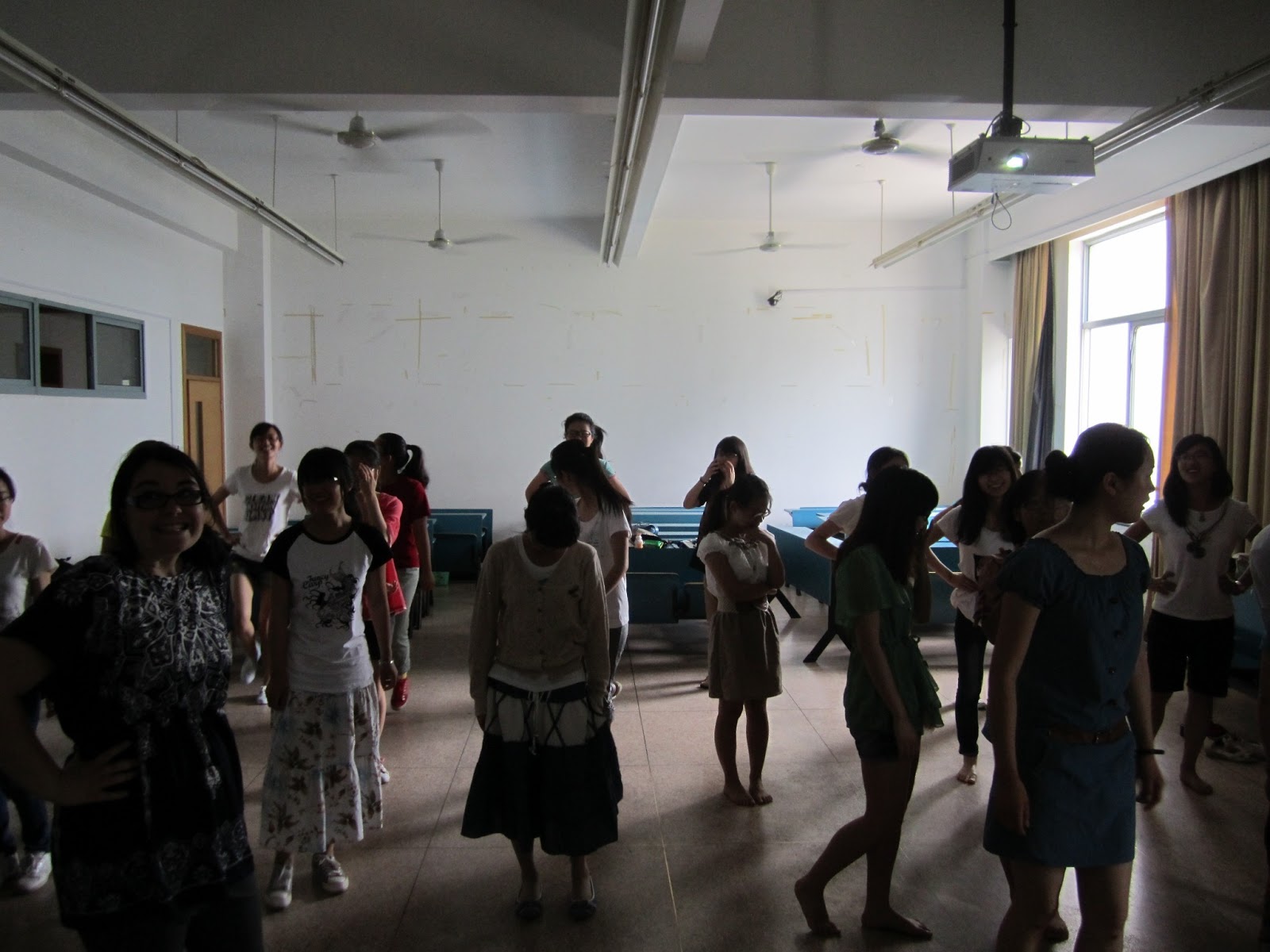Now, most of the universities and communities in China are gated, for security purposes, with 10 foot walls, often lined with barbed wire or glass, and there are only one or two exits. The shuttle that takes me from the campus I live in to the campus I teach in picks us up at exactly 6:55 every morning. So, on mornings across from our campus, there are a collection of foreign and Chinese teachers waiting in a large crowd next to a stop sign. We then jockey for a seat on the bus (there is really no line-culture in China; you can push your way to the front, ahead of people who were there first). The foreigners usually congregate in the back of the bus and we would be the loudest (not a difficult thing to be, as the majority of the Chinese teachers--wisely--use this time to sleep) as we shoot the shit.
An hour later of talking or sleeping, we arrive at campus, on the outskirts of the city, in the education district called Xiasha. It is a district of only universities, dorms, and stores that cater to college students. Usually, unless there is bad traffic, we arrive at about 7:55, just in time for the 8:00 bell. That's right: bell. Most universities have a bell that indicates when classes begin and end. This threw me at first, because it feels a lot like middle school. To further this feeling, the university takes attendance very seriously; if students miss class, they need to provide documentation from the school in order for it to be a 'legal' absence. Most students have 3-4 classes every day from Monday through Friday, with minimal homework.
So, as a teacher, you are typically teaching anywhere between one and four classes each day, for a total of somewhere between 12-18 teaching hours, depending on your contract and it will vary each semester. Typically foreign teachers teach Oral Speaking, so you would teach all the same classes each week, which means you only have one prep each week. Since I taught for the honors college and had some experience in teaching (and two degrees in Education) I was given some other courses, for a total of 4 preps per week. There are pros and cons to each kind of teaching; one is a bit boring and a little redundant, but somewhat more relaxed and the other is manically stressful but the variation is nice.
Classes are taught (individual schedules may vary) from 8:20 am to 12:05 pm and then you have an hour and half for lunch and a nap, and then you have classes again from 1:30 to 4:30 and then most of us usually catch the 4:40 shuttle back to the campus we live at, but an unfortunate few get to teach night classes from 6:00 to 8:30. And since scheduling definitely does not take into consideration teachers wants, you might end up teaching one class at 8:30 in the morning and then not again until 1:30...or if your schedule really sucks, maybe a night class. And since shuttles only run a few times a day and the public bus is a 2 hour commute, going back home and then coming back is not an option (unless you have a car, and lets face it, not too many foreign teachers are going to be in China, or are willing to face the Chinese traffic, long enough to think about getting a car). And that is your average day as a university teacher in Hangzhou, if everything goes according to plan.
Classes are taught (individual schedules may vary) from 8:20 am to 12:05 pm and then you have an hour and half for lunch and a nap, and then you have classes again from 1:30 to 4:30 and then most of us usually catch the 4:40 shuttle back to the campus we live at, but an unfortunate few get to teach night classes from 6:00 to 8:30. And since scheduling definitely does not take into consideration teachers wants, you might end up teaching one class at 8:30 in the morning and then not again until 1:30...or if your schedule really sucks, maybe a night class. And since shuttles only run a few times a day and the public bus is a 2 hour commute, going back home and then coming back is not an option (unless you have a car, and lets face it, not too many foreign teachers are going to be in China, or are willing to face the Chinese traffic, long enough to think about getting a car). And that is your average day as a university teacher in Hangzhou, if everything goes according to plan.
















